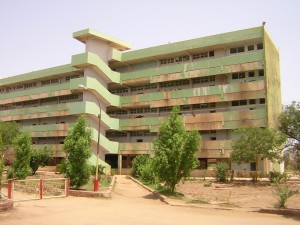HEALTH CARE SYSTEM: Doctors’ pick n’ mix
A Health Care System is, by definition, the organization of people, institutions, and resources that deliver health care services to meet the health needs of target populations. I am serious, I know it sounds crazy and weird but I swear I didn’t make this definition up. If you don’t believe me go check Wikipedia or visit any hospital outside of Sudan. Then you will get to know that the relationship between Sudan and the health care system is like the relationship between a cat and chopsticks.
Considering that there is almost no health, no care and no system at all outside of Khartoum, therefore the health care system must have concentrated efforts in the capital, and Khartoum must have very good hospitals and medical facilities. Wrong. Its is not the case in most cases. In fact, like many other people, I used to watch ER and Scrubs and say wow, it’s a TV show but look how are they saving patients; wow, good job on treating this case; look how they dress, how clean how organized. Then something bad happened, I went to work in Khartoum governmental hospitals.
I have seen a doctor sleeping in a patient’s bed and the patient sleeping on the ground with his family; a patient inside an operating theater and the operation was stopped because the blood bank guy was having breakfast somewhere. I have seen not only flies, mosquitoes and cockroaches but i have also seen animals, dogs, cats, rats and even a monkey inside the hospital. I have seen doctors with slippers, a female doctor leaving an emergency case to go on the phone and greet someone, “Ooo, Mushtageen;” and I have seen many other things that can only be seen in hospitals in Sudan.
One of the phrases that I hate is “Yomo Tamma,” which translates into “His day has come.” Yes I know everyone has a certain day to die but come on, you can’t shoot someone in the head, stab him in the heart and say “Sorry, Yomo Tamma.” Yes, that was his day, but you were the cause. I know that the salary of a Chinese guy working in a shoe factory in Chongching is probably a little more than double the pay of a Sudanese experienced doctor and the only reason doctors are actually practicing medicine is because they have nothing else to do; but what is the point of working at all if you are going to be picky? “Almost dead, I will not take this case”, “sever condition, nope”, “This patient looks like trouble, we won’t take responsibility”, “refer.” Cause of death is not usually due to complication of disease, I’m pretty sure most are DDA cases (Death Due to Anger), or in local language “Mat za3la”, which can also hit even the healthiest people around. Then you hear the word “Yomo tamma“, oh, really? Thanks for telling me. Not mentioning that, in a lot of cases, the family still have to pay the hospital for their services, basically for helping the patient die.
Dear doctors of Sudan, patients are not food, you can’t pick what you like and throw the rest. Dear Health care System, change.






As a fellow doctor who practised in Sudan for two years, I must say I am quiet disappointed with this piece. The article, overall, seems to suggest a link between the current state of health care in Sudan and doctors. It also implies that doctors are the main reason why the health care system in Sudan is in the state it is in right now. And that in my opinion, is inaccurate. I am quiet surprised actually that this piece was written by a fellow doctor. I am afraid even if we replace all the doctors in Sudan with those from the author’s favourite hospital-themed TV shows he mentioned above, things won’t change a bit!
As medical practiioners, we hold the responsibility to offer the public an accurate account for why the health care system is at its current state and ask for their help to fix it. Poor funding, mismanagement of resources, messed up priorities, lack of transparency and accountability, poor education and training were what I hoped the author would maybe attempt to shed light on.
Thanks for your piece.
Despite its negative appraisal of doctors, it carries a good message.
Check this out though; like other systems in Sudan, the healthcare system reflects how the country works.
And like other systems, it can’t change unless we have leadership capable of installing a better system.
The current system is not necessarily composed of the best and brightest Sudan has to offer.
It is composed of military thugs, ideological madmen, and a collection of thieves.
They don’t necessarily plan all that well, nor do they have the fire-in-the-belly kind of passion needed to effect positive change.
As long as they remain in power, the money and the political capital will be expended to secure their position and interests.
Leadership is essential! However, where are those leaders who can replace the current one and carry Sudan (including its health care system) to a better place? I honestly don’t know where they are.
Hey. I think there is some thing wrong with your RSS feed. I hope you are able to fix it!
Dear Terrance,
There is a compatibility issue when you subscribe to the magazine’s RSS feed using Google Chrome. We are working to fix this problem.
In the meantime you can use this link 500wordsmagazine.com/feed/ from other browsers in order to subscribe to the RSS feed.
Thank you and sorry for the inconvenience.